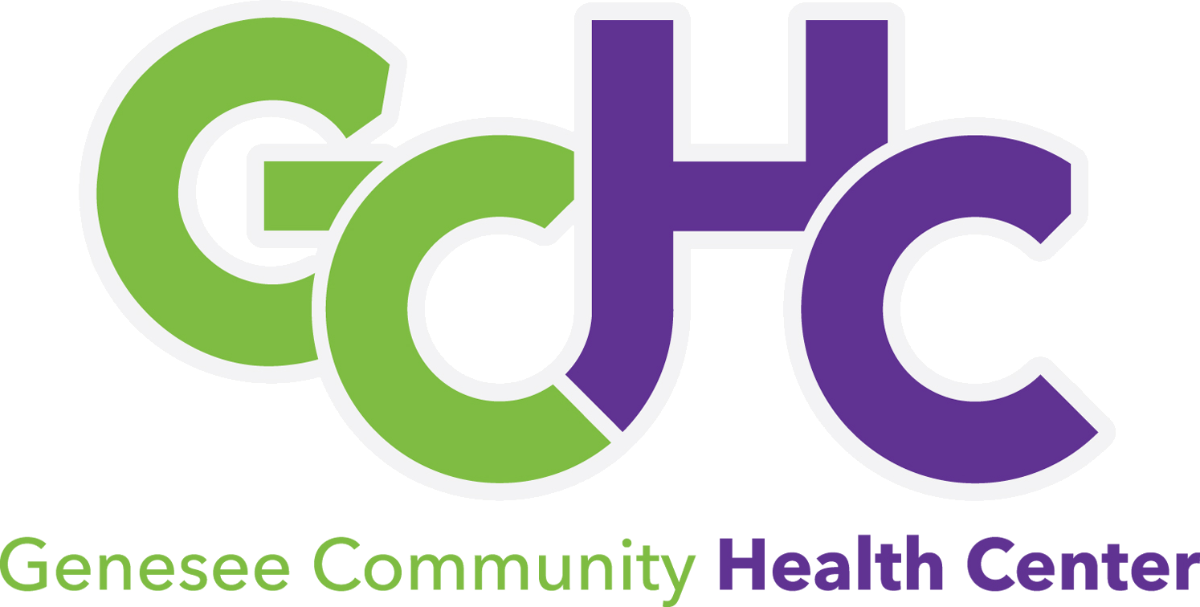Compliance Mission
The purpose of the Genesee Health System (GHS) Compliance Program is to provide quality care for all of our customers by acting as an internal control. This encourages services that are provided by persons acting in good faith, with a duty of care and safety to the consumer, and promotes honesty, integrity, and high ethical standards.
Compliance Goals
The goals of the Genesee Health System are to deter fraudulent acts, detect misconduct, and prevent the waste and abuse of government resources and monies. In the spirit of the Medicaid Integrity Rules, everyone has a responsibility to make sure that monies provided for healthcare are spent on the right recipients, the right provider, for the right services.
Fraud, Waste, and Abuse
This is what we call the “Do Right” program of ethics. We encourage everyone in the GHS to have basic compliance policies within their programs or agencies. It is required that each organization have a provider-wide Corporate Compliance Code of Conduct standard, of which all persons providing a service should be made aware. There should be a designated Compliance representative that handles complaints and can assist with issues related to misconduct. Genesee Health System adheres to and follows the principles of the Corporate Compliance Plan created as a guide by the Prepaid Inpatient Health Plan Corporate Compliance Committee with input from the Community Mental Health Compliance Officers from Genesee Health System, Lapeer, Sanilac, St. Clair and Region 10 Compliance Officer. The Genesee Health System Compliance Officer participates and has an opportunity for review this plan annually and to provide and suggest goals and input in this plan. The Plan currently can be found on the Prepaid Inpatient Health Plan website.
Defining Fraud, Waste, and Abuse
Fraud – Knowingly making a false (claim) statement for payment or benefit; twisting or bending the facts to obtain payment or other benefit(s).
Waste – Occurs whenever the taxpayers do not receive a reasonable return on their money, for government-funded activities, due to incorrect acts or errors. Most waste does not involve a violation of law; rather, waste relates mainly to negligence, incorrect actions, and insufficient or poor controls.
Abuse – Describes practices that either directly or indirectly result in unnecessary costs to the Medicare program. Abuse includes any practice that is not consistent with the goal of providing patients with services that are medically necessary, meet professionally recognized standards, and are fairly priced.
Recognizing Abuse
Abuse involves behavior that is lacking or improper, given the facts and circumstances, when compared with behavior that a sensible person would consider reasonable and necessary business practice. Abuse also includes misuse of authority or position for financial gain for oneself or an immediate or close family member or business associate. Abuse does not necessarily involve fraud or violation of laws, regulations, or provisions of a contract or grant agreement. The following are examples of abuse (this is not a full list):
- Creating unneeded overtime
- Conflict of interest including misusing the official’s position for personal gain (including not only the official’s personal interests but the interests of family members or others)
- Claiming hours not worked or services not provided
- Making or procuring vendor selections that are different, not written in existing policies, or unnecessarily wasteful or expensive
- Dishonest behavior, misconduct, inappropriate billing practices designed to give an individual or company the largest profit (created just to make money), are signs that there may be poor quality services being provided to consumers.
Case Examples of Fraudulent Billing from Office of Inspector General (OIG)
A psychiatrist was fined $400,000 and permanently excluded from participating in Federal healthcare programs for falsifying provision of therapy sessions requiring 30 or 60 minutes of face-to-face time with the patient, when he had actually provided only medication checks for 15 minutes or less. The psychiatrist also misrepresented that he provided the therapy sessions when, in fact, a non-licensed individual conducted them.
Examples of Fraud, Waste, and Abuse
- Knowingly (and in some cases, unknowingly) submitting or causing to be submitted a false or fraudulent claim.
- Billing for services not provided
- Altering a medical record
- Providing a service, but using the wrong date or time
- Billing for a service that was not medically necessary
- Billing for non-covered services
- Double billing (billing for the same service twice)
- Timesheet falsification
- Unbundling an all-inclusive service that is resubmitted as separate services
- Lying about or falsifying credentials
- Under-billing (not billing for otherwise billable medically necessary services)
- Unexplained entries and/or altered records
- Inadequate or missing documentation
- Delays in producing requested documentation
- Unauthorized transactions
- Unusual patterns and trends in contracting and procurement
- Offers of gifts, money, or other gratuities from contractors, grantees, or other individuals
- Providing false or misleading information
- Missing signatures and credentials
- Missing files, reports, data, and invoices (both electronic and paper)
- Missing, weak, or inadequate internal controls
- Billing for services that were performed by an improperly supervised or unqualified employee
- Billing for services that were performed by an employee who has been excluded from participation in Federal healthcare programs
- Billing for low-quality services
- Collusion among providers; e.g., providers agreeing on minimum fees they will charge and accept
Defining a False Claim
For persons providing services:
- Federal Civil False Claims Act A civil action against a health care provider may be brought against a provider who:
- Knowingly presents, or causes to be presented, a false or fraudulent claim for payment or approval to a federal employee;
- Knowingly makes, uses, or causes to be made or used, a false record or statement to get a false or fraudulent claim paid; or
- Conspires to defraud the government by getting a false or fraudulent claim allowed or paid.
- Michigan Medicaid False Claims Act
- Prohibits a person or organization from making false statements, or false representations of material facts, for use in determining rights to a Medicaid benefit; and requires a person who has knowledge that would affect his initial or continued right to receive a Medicaid benefit.
- Prohibits a person or organization from making or inducing false statements or representations with respect to the conditions or operation of an institution or facility related to its qualifications as a hospital, home health agency, or other facility.
- Prohibits any agreement, combination, or conspiracy to defraud the State by obtaining or helping someone else obtain payment or allowance of a false claim.
- Prohibits the making of any false claim, including any claim that misrepresents the medical necessity of a health care service.
Protections
You are protected if you make a complaint. Whistleblower protections prohibit an employer from discriminating against an employee in the terms or conditions of his or her employment because the employee initiated or assisted in a false claims action that was accepted for investigation.
For persons receiving services:
- False claims, false statements, and false representations made to HMOs, insurers, or other health plans related to a beneficiary’s entitlement to health benefits.
- False representations concerning the medical necessity of goods or services provided to a health plan beneficiary.
- Failure to disclose an event affecting a provider’s initial or continued right to receive payment for providing a health care service.
- Any agreement, combination, or conspiracy to defraud an HMO, insurer, or health plan by making, presenting, or assisting another in making or presenting a false claim for payment of health care benefits.
You will not lose benefits or services because you made a complaint. We respect your right to make a complaint, and it is our goal to make every effort to assist you and make sure you have a good experience, with access to quality care that is reasonable and appropriate for your particular situation.
Reporting Fraud, Waste, or Abuse
It is everyone’s responsibility to recognize and combat false claims for the protection of healthcare dollars. It is everyone’s job to make sure services are provided with integrity. The Corporate Compliance Program explains how you can share your concerns about Fraud, Waste, or Abuse of government monies. If you have privacy concerns and/or complaints, you may contact the Corporate Compliance office.
Anonymity
If you do not wish to disclose your identity, you may remain anonymous when contacting the Corporate Compliance office. However, please keep in mind that anonymity may slow down a quick or full investigation or the success of a later prosecution.
What to Do if You Want to Report a False Claim
You may report any issues and ask questions of the Compliance Officer/representative on the Genesee Health System Ethics Hotline by calling (810) 762-5288 or you may write to:
- Genesee Health System
Corporate Compliance Office
1040 W. Bristol Rd. Flint Michigan 48507
(810) 762–5288 | lshumpert@genhs.org - Michigan Department of Community Health
Medicaid Integrity Program
400 S. Pine Street, 6th floor Lansing, MI 48909
(866) 428-0005 - The Office of the Inspector General (OIG) of Health & Human Services
(800) 222-8558
The Genesee Health System and/or your employer cannot retaliate against you if you report outside of the agency.
You should make every effort to report in good faith since fraudulent reporting of false claims may incur liability outside of your employer.
More Documents
Region 10 PIHP FY2025 Corporate Compliance Program Plan
Things To Consider When Giving Consent To Share Health Information
FAQ for MI Resident About MDHHS-5515, Consent To Share Health Information
Uses of Artificial Intelligence (AI) FAQ
*Additional information regarding the “Consent to Exchange Health Information” found on the Forms webpage.

